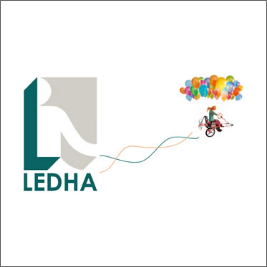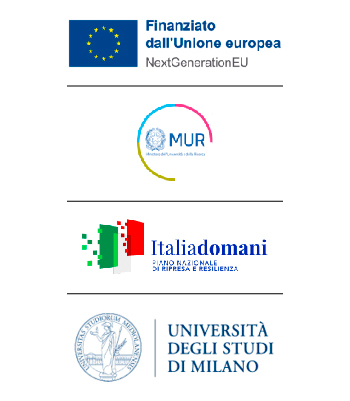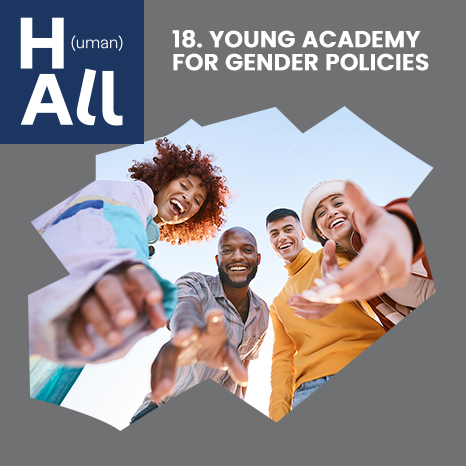SOCIAL SUSTAINABILITY AND UN 2030 AGENDA
From education to reducing inequalities, to responsible production and consumption. The UN defines sustainability in a broad and diversified way. This project aims to enhance the informed and active participation of students, citizens and businesses in order to achieve the objectives of the 2030 Agenda in metropolitan areas.
Courses and events will be organized, also in collaboration with private and non-profit companies, open to students, citizens and businesses. With the aim of building a “civic university”, where the social management of knowledge becomes an engine of sustainable and competitive development, the project aims to strengthen the activities of the Third Mission and the internal connection of the university, coordinating on the one hand the Civic Laboratory, to spread the culture of social commitment and the value of civic solidarity in the scientific and cultural field and on the other hand the Green Office, a round table, to co-program and co-design between representatives of teachers, administrators and students and Entities of the Third Sector task of guiding the transition towards a sustainable university, proposing strategies to further reduce its impact and connecting the various actors in the university.
TEAM

Federazione Italiana per il Superamento dell’Handicap,
costituita nel 1994.

L’associazione, fondata nel 1979, lavora per la tutela
dei diritti delle persone con disabilità.
WHAT DO WE DO
INIZIATIVE
UN 2030 AGENDA GOALS
Interview with Stefano Bocchi, Rector’s Delegate for the sustainability and full teacher of Agronomy and

Professor Bocchi, why is the UN Agenda related to the project Human Hall?
UN 2030 Agenda defines sustainability with a wide approach and says that the 17 goals cannot be considered separately: the method must be organic and multidisciplined. This is the same approach of project Human Hall.
How much is it important for the single project to be collected in a hub?
It is fundamental. If we want to move forward in the field of sustainability, it is important to follow an integrated and multidisciplined method. Many specialized projects risk to be counterproductive. The path followed by Human Hall is complex, it includes several subjects and teacher. However, the aim is to reach an organic picture.
Is it possible to combine environmental and socio-economic sustainability together?
There are some tools which allow the assessment of sustainability as a whole. Nowadays new standards are starting to emerge, which force us to analyze sustainability with a quantitative and comparable approach. How to put everything together? Being consistent with the UN 2030 Agenda terms.
How to report the UN global goals on a local scale?
The ambition is to increase the awareness of the UN 2030 Agenda goals in the metropolitan area, this through initiatives and short courses for both students and citizens.
Thanks to the Green Office too…
Yes, the Green Office is the core of all the other offices and working groups. It is a connection of students, teachers, and technical and administrative staff with the aim to improve the connection within UniMi and to suggest new strategies to make the Atheneum more sustainable.
Professor Bocchi, why is the UN Agenda related to the project Human Hall?
UN 2030 Agenda defines sustainability with a wide approach and says that the 17 goals cannot be considered separately: the method must be organic and multidisciplined. This is the same approach of project Human Hall.
How much is it important for the single project to be collected in a hub?
It is fundamental. If we want to move forward in the field of sustainability, it is important to follow an integrated and multidisciplined method. Many specialized projects risk to be counterproductive. The path followed by Human Hall is complex, it includes several subjects and teacher. However, the aim is to reach an organic picture.
Is it possible to combine environmental and socio-economic sustainability together?
There are some tools which allow the assessment of sustainability as a whole. Nowadays new standards are starting to emerge, which force us to analyze sustainability with a quantitative and comparable approach. How to put everything together? Being consistent with the UN 2030 Agenda terms.
How to report the UN global goals on a local scale?
The ambition is to increase the awareness of the UN 2030 Agenda goals in the metropolitan area, this through initiatives and short courses for both students and citizens.
Thanks to the Green Office too…
Yes, the Green Office is the core of all the other offices and working groups. It is a connection of students, teachers, and technical and administrative staff with the aim to improve the connection within UniMi and to suggest new strategies to make the Atheneum more sustainable.
Stefano Bocchi, Marina Carini
SOCIAL INNOVATION
AND SUSTAINABLE DEVELOPMENT

Which are the goals of the project “Social Sustainability and UN Agenda 2030”?
This project concerns everything regarding the 17 goals of the UN Agenda 2030. Since I’m the protector of Third Mission, I deal with those issues related to social responsibility, connected to the goal 8 and 10.
What is the goal 8 focus?
The goal 8 deals with dignified work and an inclusive economic growth. It is a crucial goal not only for the UN, but also for our project. It will be relevant to engage both small and big companies, able to support a social and cultural innovation. This is a concept that is often underestimated because – both in universities and companies – there is the tendency to associate innovation with technology. Technology is fundamental, however, for a conscious development, social innovation is the key.
This situation depends also on the fact that technological innovation can be “measured” more easily?
It’s true: technological innovation, for example speaking about patents, can be measure in an instant and easy way, whereas social innovation is something of intangible. To measure the social impact is more complex, but necessary.
Besides measurability, I think there is a cultural problem too. It will be important to communicate with companies to make them understand that sustainability and social innovation involve a new mentality, but they are not an expense. The courses promoted by our project must be well-balanced also from this point of view: they don’t have to be only about formation, but also about concrete examples of applications.
Going back to the UN goals, what’s the aim of goal 10 and how it is involved in this project?
It concerns the reduction of inequalities. It is a central goal for the Third Mission to create a “civic university” – as the University Strategic Plan 2022-2024 underlines. Here the social management of knowledge becomes a driver for sustainable development. It includes many things: volunteering, the project Carceri, training to promote solidarity activities.
What’s the added value of Human Hall?
To be part of a hub – involving teachers’ energies and enhancing the multidisciplinary approach of the university – is the only way to follow a common goal. We are trying to avoid that individuals work on important but dissimilar issues. Human Hall is a broad reality, but all the projects have a common word: inclusion.






















